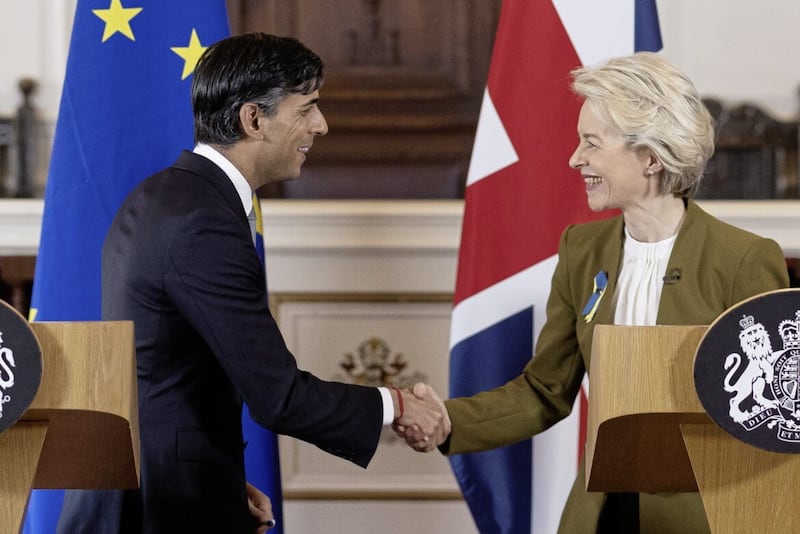Just when devolution was being written off altogether, or at the very least parked until there’s a changing of the guard in Downing Street, the DUP pulled a surprise move. Friday’s meeting of the DUP’s 12 party officers is understood to be the beginning of a process that if the leadership gets its way, will lead to the restoration of the Stormont institutions before the end of this month. It’s expected that there will be further meetings in the coming days, potentially of a full DUP executive or one involving the party’s MPs and MLAs.
What is apparent is that movement is afoot, weeks after most observers believed it should’ve happened. When Sir Jeffrey Donaldson’s spurned the opportunity provided before Christmas by the British government’s tabling of a £3.3bn financial package, and then let matters drift over the first weeks of the new year, it was widely felt that the ship had sailed.
The setting for the next chapter was uncharted waters, likely a form of indirect rule with input from Dublin.
But just when the outlook for power-sharing looked its gloomiest, an eleventh hour lifeline appears to have been thrown from DUP HQ. Yet the timing of the move has everybody stumped. Why wait until after the biggest general strike in decades, when the restoration of the institutions would have averted the mass industrial action? Why lead everybody to believe devolution was doomed and that Plan B was the only way forward?
Only Sir Jeffrey and his leadership team have the answers, but if anything the past two years, and particularly the last few weeks, has taught us, it’s to expect the unexpected.
Looking at the bigger picture, however, it was always clear what the direction of travel is, which is arguably why there was so much despondency when the DUP didn’t jump. Any concessions given by the British government were never going to impact on the operation of the protocol, as modified under the Windsor Framework. It was a small landing zone for the so-called negotiations between London and the DUP but one the significance of which needed to be exaggerated in order to make it easier to sell.

Reports in the Daily Telegraph confirm as much, suggesting any changes are largely cosmetic, including a “patriotic rebranding” of the Irish Sea border.
If indeed a tweaking of the post-Brexit trade arrangements, coupled with some rhetoric reaffirming the north’s place in the union, is all the DUP has secured on the back of two years’ antics, the party’s supporters and the wider public will surely wonder whether it was all worth it. Two years without government, further degradation of public services and widespread disillusionment with politics is perhaps a high price to pay for what amounts to a fig leaf.
In a process that has heated up and cooled down countless times, it would be foolish to assume we are now in an end game. However, the DUP leadership must realise that the alternative is much less inviting. The prospect of serving alongside a nationalist first minister in an assembly without a unionist majority will be difficult for the DUP to stomach but regressing to the role of protest party, on the margins rather than at the centre of power, is surely less appealing?
There may be some within the DUP’s ranks who will seek to derail the process but ultimately Sir Jeffrey needs to choose between pragmatism or protest.


